What’s Coach Beard Reading?: Every Book in TED LASSO Season 2
In 2021, as we waited with great anticipated for Ted Lasso season two, I wrote Overanalyzing Every Book in Ted Lasso to Predict Season 2 as a transparent excuse to rewatch season one for the fourth time. I have to be honest with you, though: my predictions were not exactly accurate. I am proud of myself for predicting that Sam would get traded, because although that didn’t happen, we did almost see Sam get traded twice: once under pressure from Dubai Air and once as an offer from Edwin Akufo. That should count!
I think my approach was all wrong. Everything about Ted Lasso is carefully chosen, from the jokes to the acting direction to references, props, and the soundtrack. Looking deeply at any one of those aspects of the show will reveal more meaning in the show, but they’re not meant as easter eggs to predict the future: they’re meant to underscore theme and bring depth to characterization. I’ve decided to use that lens in this season two book list instead.
Each episode, I will attempt to exhaustively list every book referenced or shown in the episode, and I’ll pick one or two to look at in more depth to see what meaning we can glean from it. As a bonus, I’m also including a separate list at the bottom of all the books we see Coach Beard reading from both season one and season two.
Obviously, this post will include spoilers for season one and two. Also, if I missed a book, or if you have insight on the significance of a book referenced that I missed, please let me know on Twitter!
Unfortunately, like season one, most of the books referenced this season are by white authors. I hope to see more diversity in the references made in season three!
Bookish References in Ted Lasso Season 2
Shakespeare
Before looking at individual episodes, it’s worthwhile to look at the bookish references that are woven throughout the whole season. From the first episode, there are multiple mentions of Shakespeare, and that continues throughout the season. This season seems to be on a grander scale than the first one: there are betrayals, big stakes, and we end on a dramatic cliffhanger.
These references are concentrated in the first half of the season and mostly refer to Shakespeare’s tragedies, which — if the dead dog in episode one wasn’t enough — should warn us that this season isn’t going to be all sunshine. These initial plays mentioned — Hamlet, Macbeth, and Henry IV — have other similarities to S2. They all deal with men jockeying amongst each other for power, often consumed by the pursuit of it, just as we see Nate consumed by his desire for more recognition and power.
Of course, if there’s one thing Ted Lasso is about, it’s fathers (more so than football/soccer, that’s for sure). And each of these Shakespeare works is also concerned with father/son relationships, whether it’s Hamlet avenging his father’s death, Macbeth being foretold to father a line of kings without ever becoming one, or Henry IV’s disappointment in his son Prince Hal.
These references help to reinforce that it’s the father/son relationships that are at the heart of Ted Lasso, especially since this is the season where we find out that Ted’s father died by suicide, and that this has influenced so much of the person Ted is today: how he wants to take care of everyone he sees because he knows how painful life can be, and also how he represses his own anger and sadness in fear of becoming his father.
The good folks at the podcast Richmond Til We Die pulled out another possible Shakespeare reference from this season: the character of Jan Maas as a Shakespearean “Fool” or “Jester” character, who can speak truth to power. Jan is a new character this season, but the ongoing joke of his Dutch bluntness comes to fruition in the final episode, when he tells the team they are capable of executing the false nine play. While the team might doubt Ted’s encouragement in that bleak moment, they know that Jan would only say that if he believed it entirely to be true, and that gives them the momentum to believe it themselves.
Mythology
In multiple interviews, Jason Sudeikis has referred to this as the Empire Strikes Back season, also saying that it’s the middle of the Hero’s Journey. So it’s no surprise that mythological references are peppered throughout the season, from Loki the trickster god to Achilles and Orion. Higgins suggests that Keeley leaving Rebecca would be a “betrayal on the scale of Greek Mythology.” Like the Shakespeare references, this adds gravitas and weight to this season: it feels like the stakes are higher, especially the emotional stakes. Star-crossed romance and epic betrayal are key plot points to season two.
Relatedly, there are also multiple references to fairytales, folktales, and even ghost stories — most dramatically in Ted’s “dark forest” speech, which contextualizes the whole of season two as being mid-fairytale, but there are also mentions of a fairy godmother, the big bad wolf, Paul Bunyan, and more.
Shelley…As In Mary Shelley?
Now, this one is a bit of a stretch, but it occurred to me this season to wonder if Nate’s last name is a reference to Mary Shelley, the author of Frankenstein. It’s not a particularly common last name (British Surnames puts it at the 1,465th most common surname in the UK), so I assume it was chosen for a reason.
After all, what is Frankenstein if not a story about a relationship between father and son? And we know that’s the through line of Ted Lasso. It could be argued that Nate’s father’s lack of respect or support for his son “created a monster” out of Nate. Alternately, Nate seems to see Ted as the father figure who failed him: in perhaps the climax of the season, Nate confronts Ted about feeling abandoned by him, which he sees as the root of his anger and insecurity that spiral into his final betrayal of Ted (and the team, more generally).
It’s not just father figures who could be seen as “creating a monster” in Nate’s arc, though: Keeley and Rebecca team up to try to give Nate more confidence, telling him, “You deserve whatever you want,” and coaching him how to demand more from others. While well-intentioned, it’s easy to see how this was one of the dominos falling that led to Nate’s later actions.
I do want to tread lightly here, because Nate is not a monster. (Arguably, Frankenstein’s monster isn’t either.) While it’s easy to be angry at him at this point, I believe he is redeemable, and I hope to see that character arc in season 3. It’s crucial to remember that Nate is a South Asian man. He’s the only South Asian character in the show as well as the only Asian man. While Rebecca’s “villainous” actions were always contextualized in terms of her being a woman in the world of sports, the show fails to add this same context to Nate as a South Asian man. You can read more about this at Nerds of Color.
Now, let’s get into the specific books referenced each episode! And scroll to the end to see all the books Coach Beard has been reading in seasons 1 and 2.
Episode 1: Goodbye Earl
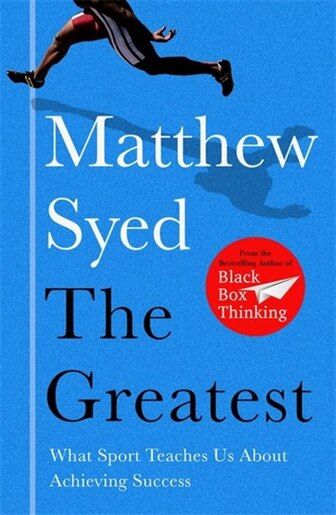
The Greatest by Matthew Syed
Given the title of this post, it feels fitting to start with the book Coach Beard is reading in this first episode. The Greatest is a sports psychology book, and this scene shows up at the end of the episode. We’ve already seen several players tell Ted how amazing Dr. Sharon Fieldstone is, to Ted’s discomfort. Not only is Ted uncomfortable with psychologists, he also put it upon himself to solve everyone else’s problems and make them feel better, so he is likely feeling threatened by Sharon. Beard reading a psychology book is a subtle nod to the idea that Beard was also impressed by Sharon, leaving Ted the only one who seems uncomfortable or skeptical about her — a thread that will continue in later episodes, as he stumbles through beginning therapy and as Sharon and Ted build a relationship.
Other Books In Episode 1
- It’s hard to say if it’s deliberate, but Ted’s childhood dog is named Hank, which reminds me of Hank the Cowdog — a fitting companion to “Ted Lasso.”
- There are some books sitting on the table in Rebecca’s office, but they’re all white and completely nondescript. Whether that’s a set design choice or Rebecca’s design choice is up for interpretation. They are different than the art books she had there in the first season, though.
- Coach Beard tells Ted, “We have a problem” when Dani can’t score a goal after accidentally killing Earl, their greyhound mascot. Nate replies, “He’s underselling. We have a Shakespearean fucking tragedy.” I won’t rehash what I’ve already discussed above, but this also underlines how Nate has changed from season one, becoming much more angry and dramatic even in these early episodes.
- Later, as they’re discussing this situation in the office, Ted says, “We don’t say the Y word out loud [the yips]. It’s like saying Macbeth in a theater or Voldemort at Hogwarts.” As I mentioned in the previous roundup, I really wish they’d stop including references to Harry Potter, given that JK Rowling has rebranded to apparently make transphobia her full-time job, but not only is this another Shakespearean tragedy reference, it also shows Ted’s superstition and avoidance. This is how Ted has approached hard things in his life: by not talking about them. This season is all about Ted realizing that this strategy has ceased to work for him, and he’s going to have to name the problem to address it. It’s worth noting that Sharon has no problem saying “the yips,” because she has proven methods to deal with it.
- Finally, as Ted talks to Beard about his discomfort around therapy, he prefaces it by saying, “Hey, Coach, can I get real a second? Forget my meal a second?” Beard responds, “Put down your beer and tell your buddy how you feel a second?” This is a Hamilton reference, specifically to “Right Hand Man:” “Can I be real a second? / For just a millisecond? / Let down my guard and tell the people how I feel a second?” The play is based on the book Alexander Hamilton by Ron Chernow. I’m no Hamilton expert, but at first glance, this looks like a fun easter egg, but let me know if I’m missing any meaning to this that reflects on the characters!
Episode 2: Lavender
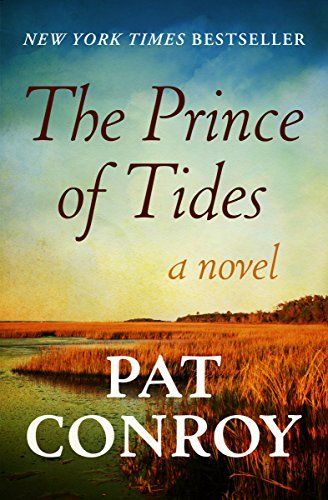
Prince of Tides by Pat Conroy
Both Ted and Sharon share their favorite books this episode, and their answers are interesting, to say the least. At the end of the episode, Sharon finally answers Ted’s question about her favorite book, opening up a little. Hers is Prince of Tides, which is a novel featuring a therapist who works with a pair of siblings. Savannah is suicidal, and Tom — a football coach — is trying to help her get better by telling her therapist about their extremely traumatic childhood. Susan, the therapist, and Tom often disagree, but they gradually become closer. (Spoilers:) They briefly have an affair, but Tom is still in love with his ex-wife, and he tries to reconcile with her. Given how Ted and Sharon butt heads at first, it’s easy to see the parallel with Tom and Susan (even the names sound similar!), including the theme of a loved one attempting suicide. It’s hard to imagine Sharon and Ted having an affair, no matter how brief, though, given Sharon’s professionalism around her job. Instead, I think this is just meant to foreshadow their future friendship, though the parallels are so strong that I wouldn’t blame viewers from assuming it’s foreshadowing more than that. Either way, it’s an interesting book for Sharon to tell Ted about, though he doesn’t seem to recognize the reference.
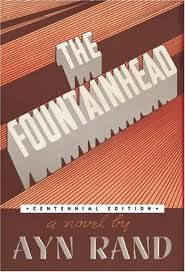
The Fountainhead by Ayn Rand
Ted asks Sharon what her favorite book is and then tells her that his is The Fountainhead by Ayn Rand. “I know, curveball, right? But I can explain.” Unfortunately, he never gets the chance to explain, because this is definitely a curveball. The entire premise of The Fountainhead is selfishness, which is the opposite of how Ted lives his life. It was likely a lead-in to a wacky story where the book is incidental, not a reflection on the content of the book, but it could also be highlighting Ted’s desire to be independent, not reliant on anyone, which is his mental health downfall. Another theory is that this is just him being “curious, not judgmental,” proving there’s something to learn from anyone.
Other Books in Episode 2
- “Lust Conquers All,” the fictional reality show (aren’t they all?) Jamie is on is inspired by “love conquers all,” which is a quote from Virgil’s Eclogues.
- Nate asks Beard, when he walks into the office, “Did you sleep here?” Beard replies, “Perchance to dream here?” That’s, of course, a Hamlet quote, making it the third Shakespeare reference in two episodes.
- When Ted asks Sharon if the team is in an “if it ain’t broke, don’t fix it” situation, Sharon asks if having no wins and eight straight draws “ain’t broke.” When Ted concedes the point, she tells him, “Heavy is the head that wears the visor,” which is a version of “uneasy is the head that wears a crown” from Shakespeare’s Henry IV, making it the fourth Shakespeare reference so far — at least, that I count. With Ted Lasso‘s writers, there’s no way that’s a coincidence.
Episode 3: Do the Right-est Thing
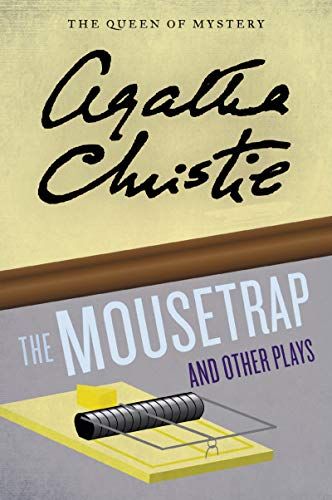
The Mousetrap by Agatha Christie
When Rebecca is desperately trying to entertain her niece Nora, after taking her to places for kids much younger than her, she suggests seeing the play The Mousetrap — “You know, that Agatha Christie play where someone dies every performance?” She then corrects herself, because only old people see it. The play is the longest-running one in West End and is famous for its twist ending, but the reference appears to just confirm that Rebecca is out of touch with what Nora would be interested in, though she agrees to tag along if that’s what Rebecca wants to do.
That’s the only bookish reference this episode, at least that I saw!
Episode 4: Carol of the Belles
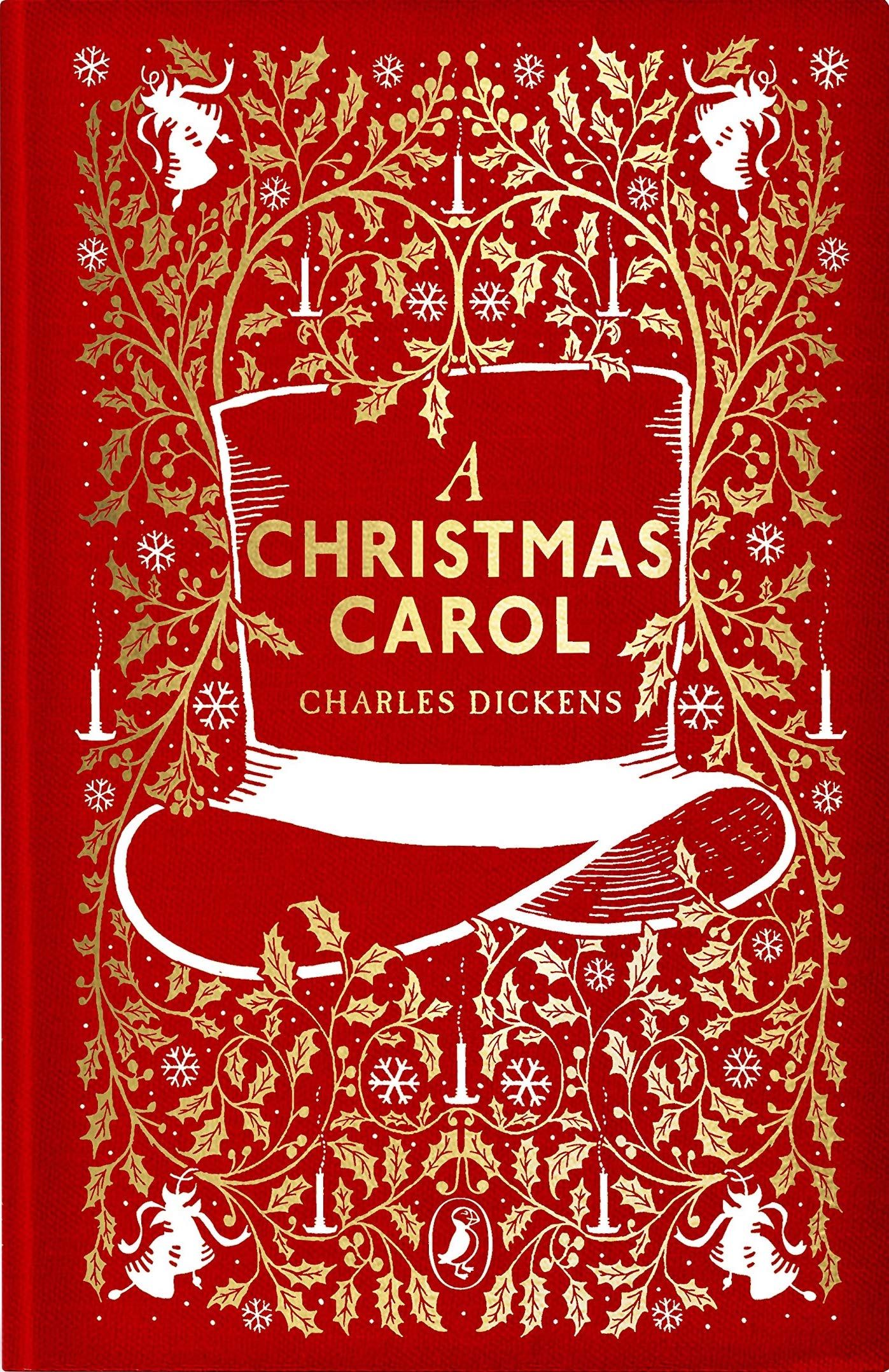
A Christmas Carol by Charles Dickens
Ted, Rebecca, Beard, Keeley, and Nate perform a minor Christmas miracle to provide Jamie with a present for Secret Santa, and he replies with, “God bless me…every one,” a mangling of Tiny Tim’s quote from A Christmas Carol. Tiny Tim is a character representing innocence, generosity, and kindness — not exactly Jamie’s strong suits. He’s already partway through his redemption process, though, and perhaps just needs one more ghost to drive the point home.
Other Books in Episode 4
- When Ted hears Rebecca might be attending a Christmas party with Daniel Craig, he says, “That sounds like double-o heaven to me.” Craig, of course, played James Bond, which was first a book series by Ian Fleming.
- As part of her Sexy Christmas decorations, Keeley has a sexy leg lamp, a reference to the movie A Christmas Story, which was based on the book by Jean Shepherd.
- One of the most memorable scenes from this episode is when Ted ends up drinking and watching It’s a Wonderful Life alone. The movie is based on the short story “The Greatest Gift“, which Philip Van Doren Stern self-published as a pamphlet in 1943, mailing it out with his Christmas cards. We see Ted watch as the main character contemplates suicide, likely thinking of his father’s own death. Just as George Bailey meets his guardian angel on screen, we see Ted open the window to see Rebecca rescuing him from this sad scene. Rebecca and Ted often serve as each other’s guardian angels, swooping in when the other needs saving.
- There are many more Christmas movie references packed into this episode than literary ones, including a possible reference to Die Hard, as the Higgins family and company have a Nerf gun war. It could be referencing any action movie, really, but given the context, it makes sense for it to be Die Hard, which was inspired by the book Nothing Lasts Forever by Roderick Thorp.
Episode 5: Rainbow
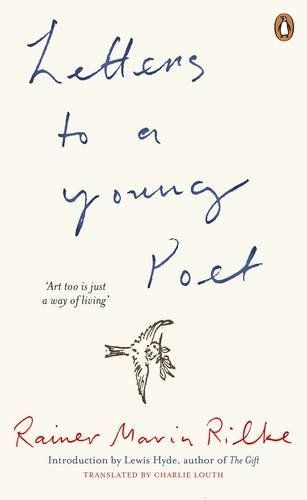
Letters To a Young Poet by Rainer Maria Rilke
Rebecca reads a quote from her mystery man (who we later found out is Sam) to Keeley: “Our fears are like dragons guarding our most precious treasures.” The text attributes it to Rilke, an Austrian poet who wrote in the early 1900s. Interestingly, this isn’t a quote from Rilke. It actually comes from a line from “The Messenger” by Ray Wylie Hubbard: “And the message I give you is from this old poet Rilke / He said ‘Our fears are like dragons guarding our most precious treasures.’”
That’s a paraphrase of Rilke’s actual quote, from Letters To a Young Poet, “How can we forget those ancient myths from the beginnings of all peoples, the myths of the dragons who turn into princesses at the last minute? Maybe every dragon in our life is a princess, just waiting to see us perform a beautiful, courageous act for once. Maybe every terror is, at absolute bottom, only something helpless, wanting our help.”
Both Keeley and Rebecca are impressed by a man quoting poetry, but because this is a misquote, it suggests that the mystery man is not quoting Rilke because he’s read Rilke, but instead using a quote seen out of context — much like Prince Harry citing a quote he got from BrainyQuote.com in Spare.
This lines up with our later discovery that this is Sam. Sam is a smart, thoughtful person, but he’s also young and somewhat naïve, so it makes sense that he would like to give off the impression of someone who is more wise, well-read, and experienced than he actually is.
As for the quote itself, it seems to apply less to Sam than to Rebecca’s story arc in season 1: she had to face her fear of being alone, being vulnerable, to find that treasure of community and real relationships — with Ted, with Keeley, and even with her work. Arguably, it can even be applied to Nate in season 2: his bravado and aggression is covering up his fear of loneliness and failure. He’s abandoned the valuable things in his life because of that fear, not recognizing the helplessness and need at the root of it.
Other Books in Episode 5
- Ted gives his fairytale speech this episode: “Now these next few months may be tricky, but that’s just because we’re going through our dark forest. Fairytales do not start, nor do they end, in the dark forest. That son of a gun always shows up smack-dab in the middle of a story.” He continues, about his philosophy of rom-communism, “It will all work out exactly as it’s supposed to. Our job is to have zero expectations and just let go.” This optimistic viewpoint may be showing Ted’s rose-colored glasses getting in the way. The team — and Ted — have real issues they need to sort out, and hoping for the best isn’t going to be the way to fix them. In fact, Ted’s tendency towards these beliefs have prevented him from dealing with his trauma, which we see bubble up later this season.
- In this entry to What Is Coach Beard Reading?, it’s Nick Hornby’s Fever Pitch, a memoir about the author’s love of football — makes sense!
- LDN152 (Sam’s username) and BossGirl are references to the romcom about competing bookstores You’ve Got Mail (NY152 and ShopGirl).
- After a string of romcom quotes, Ted tells Roy, “As you wish,” a Princess Bride reference — which, of course, was originally a book.
- When Sharon says her door is always open, Ted asks, “Well why even have one? Beard could take that out Jack Torrance style with eight good whacks.” This is a reference to The Shining, which also was originally a book.
- Ted tells Sharon that Beard has had many lives, many masters. Many Lives, Many Masters is a book by Brian L. Weiss about past lives.
- This one is a bit of a stretch, but Isaac’s elaborate handshakes with Ted and others are arguably a reference to The Parent Trap, which is based on the book Lisa and Lottie by Erich Kästner.
Episode 6: The Signal
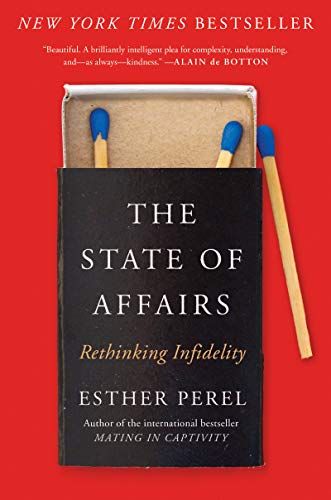
The State of Affairs by Esther Perel
Rebecca’s mother, Deborah, takes center stage in this episode, and we learn about her partly through her reading habits. One of the first things she describes herself as — while yelling out a window to Ted and the pitch in general — is a “voracious” books-on-tape listener. She goes on to quote Esther Perel, a couples therapist who has written two books on the subject: Mating in Captivity and The State of Affairs. Over lunch with Ted, Rebecca, and Keeley, Deborah says, “Esther Perel says it takes two people to create a pattern, but only one to change it.”
She goes on to mention attending a reading from a (non-existent) Brené Brown book, Enter the Arena: But Bring a Knife. Brené Brown is an author and researcher who writes about, among other things, vulnerability. (She’s also a big fan of the show!)
Deborah’s mentions of books paints a picture of someone who is introspective — an avid reader of self-help books. In Rebecca’s mind, at least, this doesn’t seem to result in action. Despite Deborah’s claim, she doesn’t break the pattern — she returns again and again to a husband who makes her unhappy.
Interestingly, a large part of the wedge between Rebecca and Deborah is because Rebecca kept her father’s affairs a secret and felt guilty about it. It’s only after his death that she finds out that Deborah did know about the affairs and stayed anyway. One of Esther Perel’s book is about affairs, and it argues that “Betrayal hurts…but it can be healed. An affair can even be the doorway to a new marriage — with the same person.”
While Rebecca sees her mother as ignorant, maybe even delusional, Deborah’s reading life instead suggests someone who spends a lot of time examining herself and her relationships — even if the actions she takes aren’t the ones Rebecca approves of.
Other Books in Episode 6
- Ted tells Sharon, “Doc, you are more mysterious than David Blaine reading a Sue Grafton novel at Area 51.”
- Beard can be seen reading Football Against the Enemy by Simon Kuper, “the record of a journey through Europe, Africa and the Americas looking at the often surprising relations between politics, culture and football.” This is a nice hint towards our later introduction to African football teams.
- Jane replaces Beard’s hat with a cap. Beard says, “It’s not too Oliver Twist?”
Jane: “Well, it is, but that’s kind of my kink, so…”
Coach Beard: “May I have some more?” - This is a stretch, but Ted and Beard’s Secret Sandwich Switcheroo reminds me of the picture books The Sandwich Swap by Kelly DiPucchio and Rania Al Abdullah.
Episode 7: Headspace
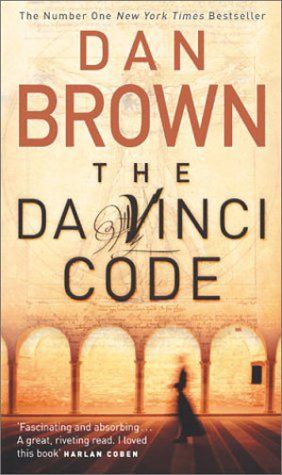
The Da Vinci Code by Dan Brown
This episode starts with a shot of The Da Vinci Code on Roy’s nightstand, and we see him reading it several times throughout. While Keeley tries to work, she asks him to read his book. While Keeley is trying to watch Sex and the City — a show based on a book, as we’ve established — Roy is explaining the book to her, to her exasperation. The fight they have mirrors Carrie’s fight with her boyfriend happening on screen. The significance of this book isn’t its specific plot, though: it’s symbolic of Roy looking for new hobbies and interests, now that he has separated himself from football. It’s healthy to pursue new hobbies, like reading, but Keeley finds that it’s more like she has become his primary interest, leaving little room for herself. While we would all like Roy to continue to find new books to love, the truth is that they’re no substitution for pursuing his real passion.
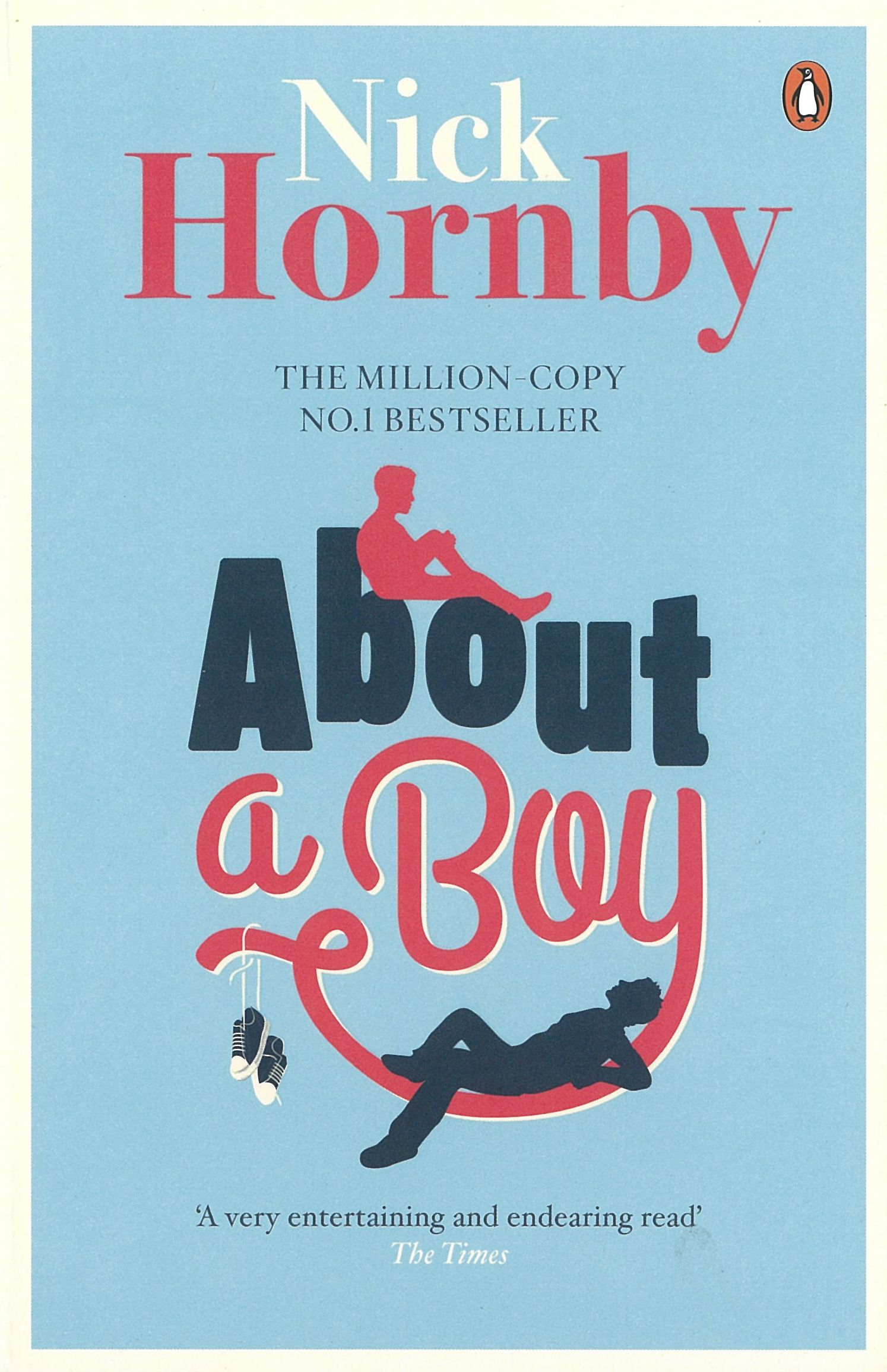
About a Boy by Nick Hornby
While The Da Vinci Code is featured the most this episode, I think the inclusion of this one is noteworthy. Nate has just given a blisteringly cruel speech to Colin:
“You see, Jamie and Dani are like Picasso and Gauguin…they’re artists. And, Colin, you paint too, but your work doesn’t end up in museums. It hangs at…Well, you’re like a painting at a Holiday Inn. You don’t inspire. You don’t move people. You’re there. You cover a bloodstain. You do the job, so just do the job.”
He then turns his back to scroll through his online praise as Colin, stunned, eventually turns and leaves. We then pan over to Beard, who is staring at Nate with this book’s cover turned to the camera. About a Boy is about Will, a 36-year-old obsessed with being cool who refuses to grow up. This seems to be a nod to Beard seeing Nate as acting concerningly selfish and immature.
On another note, this is the first time we see Beard reading a novel — or a book not related to sports — on screen. Presumably, Beard reading Fever Pitch by Nick Hornby led him to this other book by him.
Other Books in Episode 7
- We get a glimpse of book on the windowsill in Nate’s parents’ kitchen, likely cookbooks, but the titles aren’t visible.
- Nate’s father says, “They say ‘Humility is not thinking less of yourself, but thinking of yourself less.’” Often misattributed to C.S. Lewis, this actually comes from The Purpose Driven Life by Rick Warren. C.S. Lewis’s quote from Mere Christianity is similar, but longer:
“Do not imagine that if you meet a really humble man he will be what most people call ‘humble’ nowadays: he will not be a sort of greasy, smarmy person, who is always telling you that, of course, he is nobody. Probably all you will think about him is that he seemed a cheerful, intelligent chap who took a real interest in what you said to him. If you do dislike him it will be because you feel a little envious of anyone who seems to enjoy life so easily. He will not be thinking about humility: he will not be thinking about himself at all.
If anyone would like to acquire humility, I can, I think, tell him the first step. The first step is to realise that one is proud. And a biggish step, too. At least, nothing whatever can be done before it. If you think you are not conceited, it means you are very conceited indeed.”
This explanation of a humble man sure sounds like Ted!
- Sharon tells Ted, “The truth will set you free, but first it will piss you off.” This is a play off of John: 8:32: “And you will know the truth, and the truth will set you free.”
This version is first traced back to a newspaper article in 1978, where a poster at an alcoholism treatment facility read, “The truth will set you free, but first it will make you miserable.” This exact version was quoted in Twelve Steps to Happiness by Joe Klaas, but as an existing quote — also in an alcoholism recovery context.
- Ted tells Nate, “Have at it, Jessica Rabbit.” Jessica Rabbit is a character in Who Framed Roger Rabbit, based on the novel Who Censored Roger Rabbit? by Gary K. Wolf.
- Mae tells Ted, while handing him a beer, “If music be the food of love, play on. Give me excess of it.” These are the opening lines from Twelfth Night by Shakespeare.
Episode 8: Man City
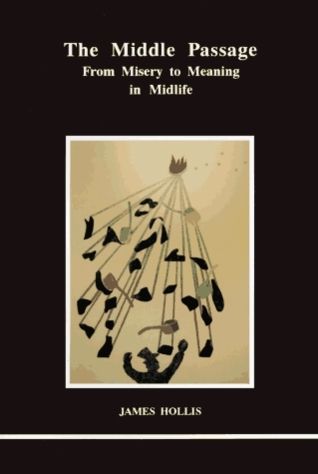
The Middle Passage: From Misery to Meaning in Midlife by James Hollis
When Ted takes Sharon home from the hospital, he picks up this book laying facedown on the table. Underneath that is You Matter by Dhiman, a book of inspirational poems. Beside them is a highlighter, suggesting close reading. The Middle Passage is a Jungian psychology book, so it’s not surprising that a psychologist would be reading it, but the work it does in this scene is further showing Ted that Sharon — despite her professionalism — is a human being with her own issues to work through. That glimpse of her humanity and struggles, both through her accident and this look into her home life, helps Ted feel comfortable opening up to her.
Other Books in Episode 8
- We see other books in Sharon’s place earlier in the episode, but it’s not possible to make out the titles.
- Sam is reading a worn copy of A Wrinkle In Time while exercising, and it’s the same cover as the copy Roy received and read to Phoebe, which means Roy probably gave it to him, which just warms my heart.
- Ted asks a nurse, “Did you know Winnie the Pooh was based on a real bear from the London Zoo?”
- Ted says to Sharon, “In concusso veritas, right?” It’s a plan on “in vino veritas,” meaning “in wine there is truth” (so Ted’s version is “in concussion there is truth”). It first appeared as “volgoque veritas iam attributa vino est,” in the Naturalis Historia (XIV, 141) of Pliny the Elder.
- Sharon’s watching Love Conquers All Stars, which, as established, comes from the phrase “love conquers all,” which is a quote from Virgil’s Eclogues.
- Ted is playing Wizard of Oz pinball at the pub as he drinks between calling in to check on Sharon.
- Ted, to Beard after he walks away after the loss: “Hey Coach! Bird by bird!” Beard flips him the bird. “Not that kind of bird, but…”
Episode 9: Beard After Hours
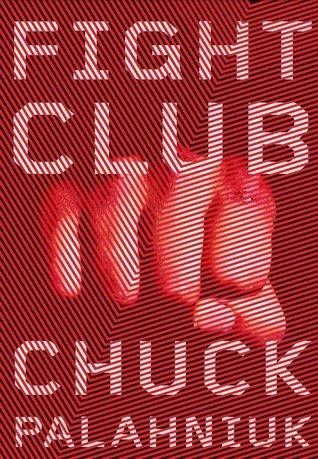
Fight Club by Chuck Palahniuk
After Beard, Jeremy, Baz, and Paul infiltrate Bones and Honey, Paul says he feels bad for Sarah, the host who they tricked into thinking her apartment was burning down. Beard says, “Tomorrow will be the most beautiful day of Sarah Coombe’s life. Her apartment will look more amazing to her than any place any of us have ever lived.” This is a reference to the line from Fight Club, after he holds a gun to Raymond’s head: “Tomorrow will be the most beautiful day of Raymond K. Hessel’s life. His breakfast will taste better than any meal you and I have ever tasted.” This is a bit of a disconcerting line for Beard to say, suggesting he’s divorced himself somewhat from morality tonight. It also makes sense as a reference in this episode, because Beard seems to be hallucinating.
Other Books In Episode 9
- This episode is packed full of references, especially visual references to movies, so I’m unlikely to have gotten them all. Some are up for interpretation. For example, the “lady in red” could be a reference to any number of things.
- In some interpretations, the whole episode is an Odyssey story.
- During the time lapse while Beard is on the tube, we see several people reading, but the titles of the books aren’t visible.
- Beard has large bookcases packed full of books at his place, which is surprising, because this is temporary housing — did he have that many books shipped over, or did he accumulate that many so quickly?
- The commentary on the match Beard has on the TV includes a reference to David and Goliath: “A real David versus Goliath match, but where Goliath just curb-stomped David in the back of the skull like in that Ed Norton movie.”
- Beard tells Mae, about his breakup with Jane, “Reason is powerless in the expression of love.” This a Rumi quote.
- Richard, the man who kept correcting Mae on a date, is reading at the bar, but the title isn’t visible.
- Bones and Honey a reference to an exclusive London bar called Milk and Honey. The phrase “milk and honey” is from Exodus.
- Mangling Beard’s pseudonym, Baz says, “Professor McGonagall taught us a lot,” which is (unfortunately) a Harry Potter reference.
- The fight in the alley is a reference to A Clockwork Orange.
- Beard prays by saying, “Are you there, God? It’s me, Margaret’s little boy,” which is — to state the obvious — a reference to Are You There God? It’s Me, Margaret by Judy Blume.
- The address Beard gives Jeremy, Baz, and Paul is a nod to The Shining (Room 237).
- The groundskeeper saying, “Walk this way” is a Young Frankenstein reference.
- When they arrive, Jeremy asks, “Is this heaven?” The groundskeeper answers, “No, it’s Nelson road.” This mirrors the exchange “Is this heaven?” “No, it’s Iowa” in Field of Dreams, inspired by Shoeless Joe.
- Beard’s entrance into the club could be interpreted as a Dante’s Inferno reference: Beard descends below the church, the hoola hoops are the circles of hell, and Jane Payne as the devil…Although, it could be her making him jump through hoops more generally.
Episode 10: No Weddings and a Funeral
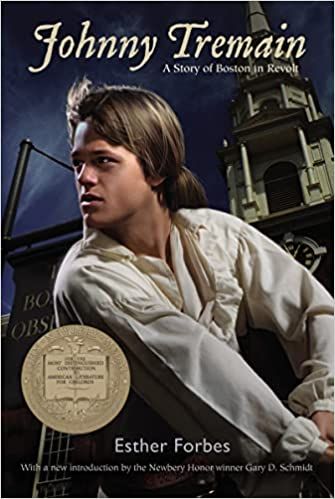
Johnny Tremain by Esther Hoskins Forbes
This episode, Ted is telling Sharon how much anger he has for his late father. She asks him what he loved about him. Ted tells Sharon that when he was in fifth or sixth grade, he didn’t do his assigned reading of Johnny Tremain, so his dad stayed up all night reading him and gave him the bullet points so that he could pass a test. Johnny Tremain is a story about a 14-year-old involved in the Revolutionary War, so it could be a nod to Ted having to grow up so young when his father died. But talking about this memory also helps him to remember his dad in a different light, and he talks about how much he regrets not telling him he was a good father. It’s an opportunity to worth through some of the emotions he’s been repressing — and, possibly, allow space for Ted to accept that he himself is a good father, coach, friend.
Other Books In Episode 10
- Beard has a book face down on his desk. Unfortunately, the title isn’t visible.
- Rebecca’s childhood bedroom has some books, but the titles aren’t visible.
- Jamie tells Dani dress shoes aren’t made for people like them: “They’re made for sheep, they’re made for Muggles, they’re made for twats.”
- At the church, a library of books with matching leather bindings is in the background of Rebecca’s conversations.
Episode 11: Midnight Train to Royston
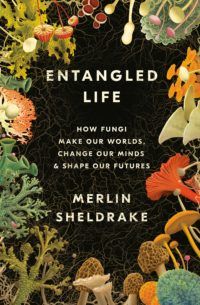
Entangled Life by Merlin Sheldrake
It looks like About a Boy wasn’t a fluke: here’s another non-sports book that Beard has picked up on screen! Entangled Life is about the role fungi plays in our ecosystem, and the relationship between fungi and humans.
Relatedly, after Nate acts annoyed with Ted asks Beard and Roy whether they ever want to be the boss, Beard tells him, “You know, we used to believe that trees competed with each other for light. Suzanne Simard’s field work challenged that perception, and we now realize that the forest is a socialist community. Trees work in harmony to share the sunlight.” Simard wrote Finding the Mother Tree. Both these books about interconnectedness, which is what is lacking with Nate at the moment.
Other Books In Episode 11
- Books are in the background of this episode — beside Rebecca as she chats with Keeley about being Vanity Fair, piled on Beard’s desk, and there’s even a bookstore beside the restaurant pop-up — but their titles aren’t visible.
- Ted tells Nate, “Call me Dumbo, because I’m all ears.” Disney’s Dumbo was based on a picture book, Dumbo, the Flying Elephant by Helen Aberson-Mayer and Harold Pearl.
- Higgins tells Rebecca, about Edwin Akufo looking to buy Sam’s contract, “I believe he’s making you an offer you can’t refuse.” Ted notes, “Godfather. I see you.”
- Henry asks Ted if he should bring his Jamie Tartt jersey or Lego Hogwarts to show and tell.
- Sharon plays the Wizard of Oz pinball game at the pub.
Episode 12: Inverting the Pyramid of Success
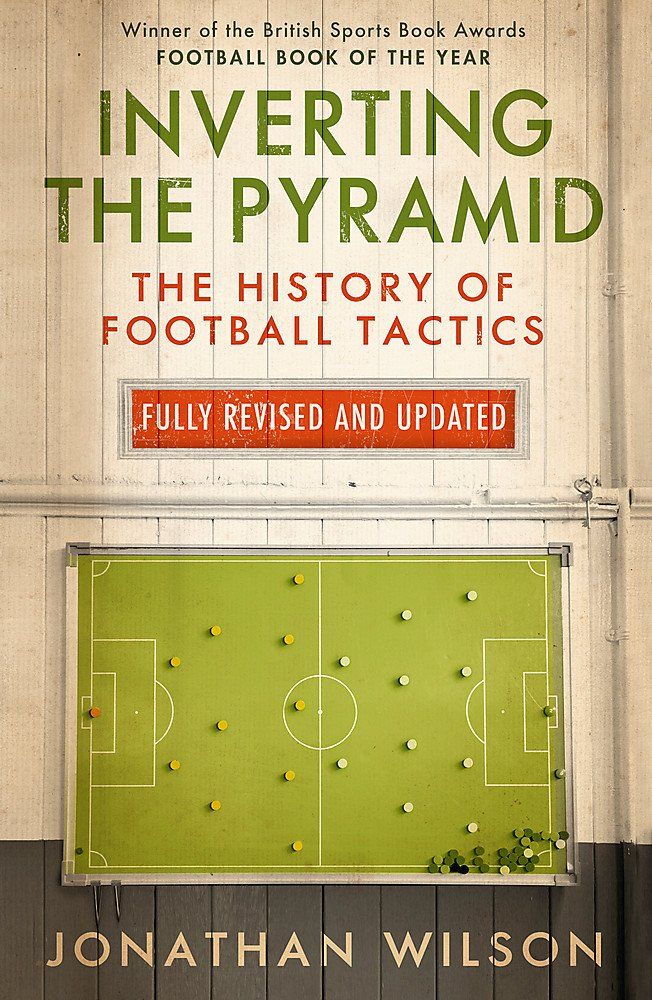
Inverting The Pyramid: The History of Soccer Tactics by Jonathan Wilson
The title of this episode is a reference to two books: Coach Wooden’s Pyramid of Success and Inverting the Pyramid. This is one of the first books we see Beard with in the series: he reads it on the plane in episode one of season one! In this episode, we see Beard reading several times through the episode. Inverting the Pyramid explores how football tactics have changed over time, including “how the South Americans shrugged off the British colonial order to add their own finesse to the game; how the Europeans harnessed individual technique and built it into a team structure; how the game once featured five forwards up front, while now a lone striker is not uncommon.”
This book suggests that success requires constantly experimenting and evolving, not resting on old strategies. We could see this as a reflection of Ted’s flaws: even as things fracture — especially with Nate — he sticks with his usual strategy of coaching. He doesn’t notice that something needs to change for the team to succeed, or for the his relationship with Nate to be mended.
We can’t look at this book in isolation, though. Before this shot of Beard reading it, we see Nate staring at the signed Pyramid of Success on the office wall. We talked about Coach Wooden’s Pyramid of Success in the season one post, but as we see the pyramid against from Nate’s perspective, it becomes obvious Nate really has inverted it. The foundation of the pyramid includes blocks labelled industriousness, friendship, loyalty, cooperation, and enthusiasm. The block near the top include competitive greatness, poise, and confidence. Nate has become so obsessed with greatness and confidence that he’s abandoned the foundational elements of being a team leader. (Of course, he’s also ignored the very top blocks, patience and faith.)
Other Books In Episode 12
- Ted greets Rebecca, Keeley, and Higgins with “What’s the story, Paul Shorey?” Paul Shorey was an American scholar who wrote about philosophy.
- Ted says, about the newspaper article coming out about him, “Unlike Lieutenant Kaffee, I actually can handle the truth.” Famously, in A Few Good Men, based on the play by the same name, Colonel Jessup tells Lieutenant Kaffee in court, “You can’t handle the truth!”
- After politely declining an offer to have Ted be on TV with a celebrity psychiatrist, Keeley hangs up the phone and then says, “Fuck you, Piers Morgan.” Piers Morgan has technically written books, but he’s more well known for being a controversial rightwing pundit.
- Ted tells the team, “To quote the great UCLA college basketball coach, John Obi-Wan Gandalf, ‘It is our choices, gentlemen, that show what we truly are. Far more than our abilities.’” This is actually a quote from Dumbledore in Harry Potter and the Chamber of Secrets: “It is our choices, Harry, that show what we truly are, far more than our abilities.”
- Ted tells the team to work on “Nate the Great’s false nine.” Nate the Great is a kids’ book series, though it may not be a deliberate reference.
- One of the prospective mascots Higgins is trying to choose between is Tina Feyhound. Tina Fey is a comedian and actor who also wrote a memoir, Bossypants.
- Ted tells Trent, “As the man says, you have to follow your bliss.” This phrase was first attributed to Joseph Campbell in The Power of Myth.
What’s Coach Beard Reading?: Every Book Beard Read In Seasons 1 & 2
As a bonus, I thought I’d gather in one place every book we see Beard read in Ted Lasso so far, both seasons. These are only books we see him currently reaching, not books he references reading.
- S1E1: Coaching Soccer for Dummies and Inverting the Pyramid by Jonathan Wilson
- S1E3: Quiet Genius: Bob Paisley, British Football’s Greatest Manager by Ian Herbert
- S1E6: The Arco Book of Soccer Techniques and Tactics by Richard Widdows
- S2E1: The Greatest by Matthew Syed
- S2E5: Fever Pitch by Nick Hornby
- S2E6: Football Against the Enemy by Simon Kuper
- S2E7: About a Boy by Nick Hornby
- S2E11: Entangled Life by Merlin Sheldrake
- S2E12: Inverting The Pyramid: The History of Soccer Tactics by Jonathan Wilson
And that’s every book seen or mentioned in Ted Lasso season two! Let me know if I missed anything. Don’t forget to also check out Every Book In Ted Lasso Season One!



